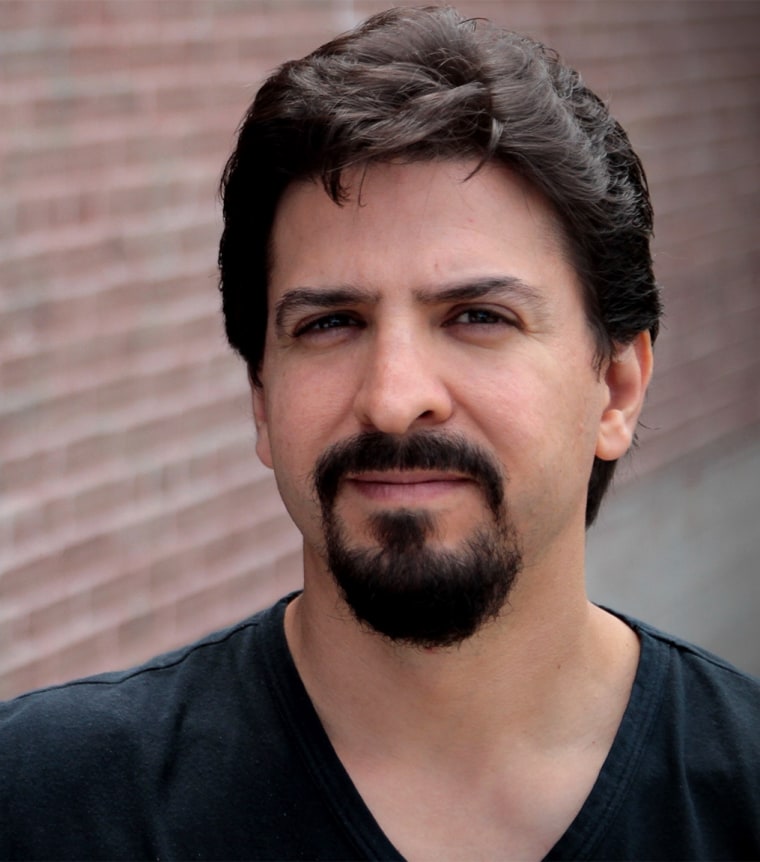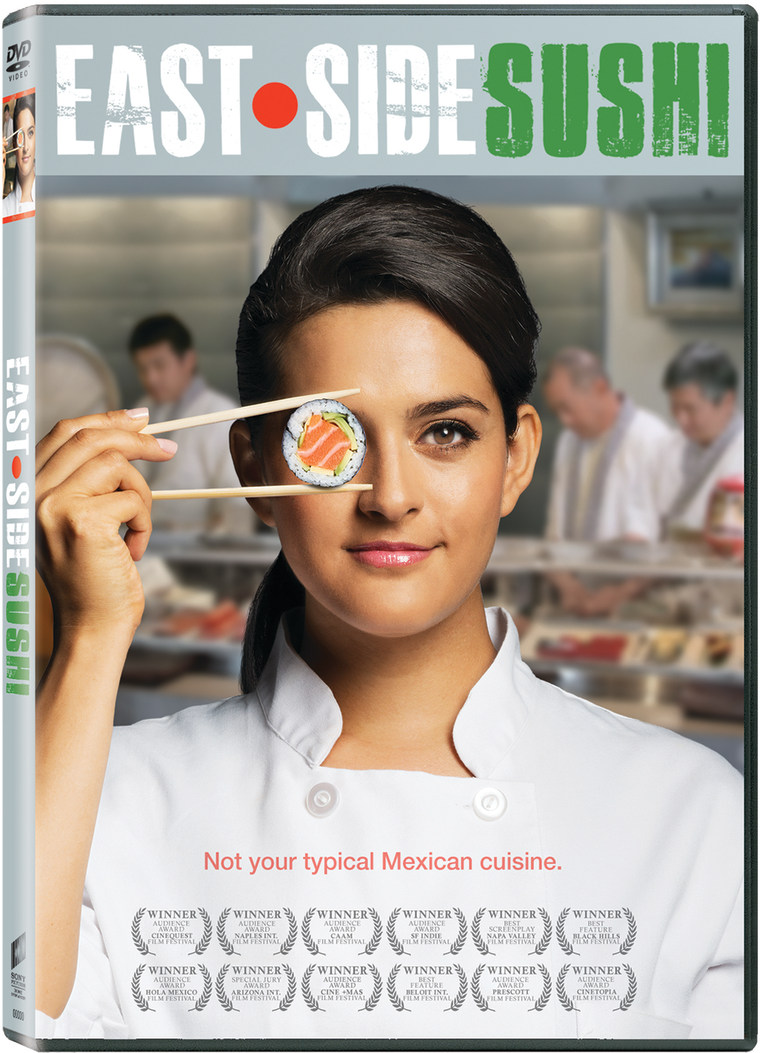
NAME: Anthony Lucero
HERITAGE: Chicano
HOMETOWN: Oakland, California
OCCUPATION/TITLE: Filmmaker
Born and raised in the inner city of Oakland, California, Anthony Lucero makes films that are multicultural and that draw inspiration from his observations of people from all walks of life. His feature film directorial debut, “East Side Sushi,” reflects a fusion of cultures and flavors, telling the story of Juana, a Mexican immigrant who strives to become a sushi chef.
"East Side Sushi” has won 13 film festival awards and was listed as one of the “Top 10 Films of 2015” by SF Weekly and one of "The most overlooked films of 2015" from the LA Times, it was released on DVD and via digital download on platforms like iTunes.
Tell us what inspired “East Side Sushi.”
So I was eating sushi one day and I saw this Latino working in the back and I thought, 'Oh I wonder if he aspires to work in the front.' I had never seen a Latino working behind a sushi counter. So I wondered: 'How does that work for the people who work there? And the customers?'
From there I started to write about “Juan,” the sushi chef.
But then I spent 8 months researching and interviewing sushi chefs and then it dawned on me that I’ve never seen a woman doing this job or dealing with the sexism and racism.
So though I had 30 pages written, I threw them out and turned “Juan” into “Juana.” It’s a small story, but I wanted to see if I could tell this very small story of this person who wants to get this promotion at this restaurant – and tell it in a way that feels epic.
It was a challenge, I didn’t think I’d be able to make it but I wanted to peel back the layers and grow it into something big.
How have people responded to the film?
The biggest surprise for me was the reaction from the audience during festival screenings. I’m very hard on myself, when I watch it I see the imperfections. I wanted to sort of cover my eyes when I watched it.
But then in the screenings people were laughing, crying. At a few screenings there were standing ovations, and I thought people were just being nice.
So, it took a long time for it to sink in that people really did enjoy it. I honestly didn’t know if they would. I worried that maybe it’s too much of a Bay Area story, but as it started winning Midwest and East Coast awards I had the revelation that it might really be good.
It turns out that it resonates with a lot of people and that is a huge satisfaction for me.
Tell us about your leap of faith from a high-profile job into independent film.
I would make these short films every year to keep up my director chops but eventually I decided to quit my job to pursue “East Side Sushi.” It was hard – I had written the screenplay and then I decided: I’m going to give up my job, my 401k, my benefits and my steady paycheck to pursue this film.
It’s hard to give all that security up but I saved up enough money to take seven months to do the pre-production, production and pay people to work.
So it was a lot of saving, penny-pinching and tucking away before I even started, which is an important lesson: Of course you need the drive, but you have to live below your means and so I did that a few years.

What are some of the challenges of being a filmmaker of color?
One thing I learned when I did my first short film — in which the leads were both Latino — is that people notice. It was 2000 and after I screened this film I had a co-worker come up to me and say, “Why did you have Mexicans in it?”
Now the story was such that the leads could have been played by anyone — white, black - the story and the characters really had nothing to do with heritage or cultural background.
The question was really odd to me, probably it was different for him because he had never seen non-Caucasians in lead roles. But after that I thought that it was something that I wanted to do, whether consciously or unconsciously.
After that I always mixed cultures — I would cast an African American woman with a Latino guy or an African American male with a woman from India.
What I learned is that the types of stories I wanted to tell were different than what I was already seeing on the big screen. I wanted more representation of what the U.S. really is. Back then I wasn’t aware of it but now I’m very conscious of it. I grew up in a very multicultural area and I do feel like it is my duty to tell those types of stories.
RELATED: Despite #OscarsSoWhite, Latino Achievement Came Through
Words of wisdom for other aspiring screenwriters/filmmakers out there?
Often, in film school or in writing courses, you’re told to write what you know. I think that’s bad advice. I think people should write about what they don’t know. I didn’t know what it takes to become a sushi chef, or to be a single mom.
It’s so important to get past your own experience, learn about others; tell stories about others. I love to just talk to people of various backgrounds, cultures and religions to get a glimpse of how other worlds work and tell their stories. That’s what works for me, maybe it will for others too.
Also, I wouldn’t put so much effort into contests because the film industry is nothing but rejection.
For me, “East Side Sushi” was all about rejections – from the time I wrote it, to pre-production to raising money and finding backers.
But that is a big part of it, so don’t put so much time into the grants and contests, spend time on writing and improving your craft. Do it because you want to do it, do it for yourself. Don’t try for affirmation — make the film you want to make and invest in yourself and that’s the best advice I can give.
Esther J. Cepeda is a Chicago-based journalist and a nationally syndicated columnist for The Washington Post Writers Group. Follow her on Twitter, @estherjcepeda.
